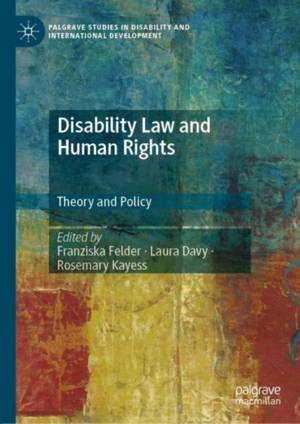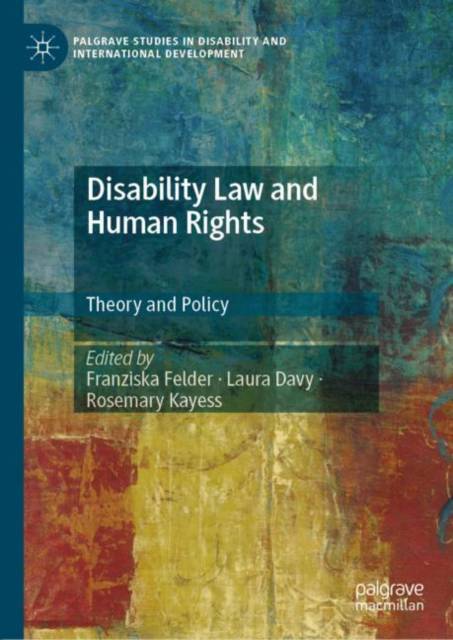
- Afhalen na 1 uur in een winkel met voorraad
- Gratis thuislevering in België vanaf € 30
- Ruim aanbod met 7 miljoen producten
- Afhalen na 1 uur in een winkel met voorraad
- Gratis thuislevering in België vanaf € 30
- Ruim aanbod met 7 miljoen producten
Disability Law and Human Rights
Theory and Policy
Omschrijving
This book, exploring the theoretical and practical implications of the United Nations Convention on the Rights of Persons with Disabilities (CRPD), brings together an international and interdisciplinary group of leading researchers in the areas of philosophy of disability, disability law, and disability policy. It addresses both the philosophical foundations of the CRPD as well as complex contemporary legal and policy debates.
With a comprehensive introduction outlining key milestones in the development and implementation of the CRPD, the book addresses the most fundamental questions the CRPD raises for the way we think about human rights, law, and disability, and how we operationalize rights in the legal and policy domains. The contributors traverse themes of personhood, equality, capacity, and intersectionality, explore the dilemmas involved in translating these concepts in practice, and reflect on the promises and limitations of the human rights project.
Specificaties
Betrokkenen
- Uitgeverij:
Inhoud
- Aantal bladzijden:
- 268
- Taal:
- Engels
- Reeks:
Eigenschappen
- Productcode (EAN):
- 9783030865443
- Verschijningsdatum:
- 18/01/2022
- Uitvoering:
- Hardcover
- Formaat:
- Genaaid
- Afmetingen:
- 148 mm x 210 mm
- Gewicht:
- 485 g

Alleen bij Standaard Boekhandel
Beoordelingen
We publiceren alleen reviews die voldoen aan de voorwaarden voor reviews. Bekijk onze voorwaarden voor reviews.










